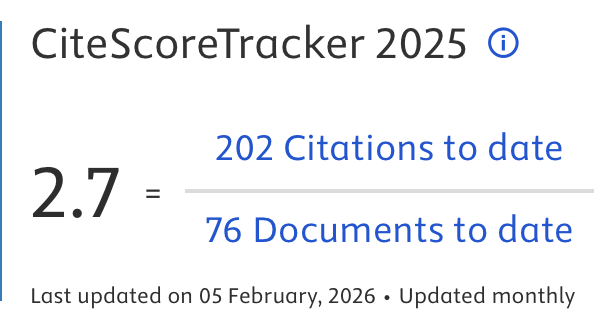Hadis Tentang Hukum Khitan Perempuan (Kajian Sanad dan Matan)
DOI:
https://doi.org/10.14421/qh.2016.1701-07Abstract
Circumcision is a tradition known and observed by societies form different religious tradiions worldwide. In Indonesia, especially on Muslim community, this tradition is deeply rooted. Having been observed for not only male but also female Muslims, its practice gains controversy. They who refuse its practice to women argue that female circumcision, while it is banned by WHO, it causes negative effects to women reproductive health. This paper attempts to examine hadith reports commonly used by Indonesian Muslims as the basis for legitimizing circumcision for female.Keywords: circumcision, Hadith, makrumah, tradition.
References
Abu> T}ayyib, Muh}ammad Syams al-H{aq al-‘Az}i>m A>ba>di>. ‘Aun al-Ma‘bu>d. Juz 14. Beirut: Da>r al-Kutub al-‘Ilmiyyah. 1415 H.
Al-‘Asqala>ni> al-Sya>fi‘i>, Ah}mad ibn ‘Ali ibn H{ajar. Fath} al-Ba>ri>. Juz 10. Beirut: Da>r al-Ma‘rifah. 1379 H.
Al-Nawawi>, Abu> Zakariya Yah}ya> ibn Syaraf ibn Murri>. Syarh} al-Nawawi> ‘ala> S}ah}i>h} Muslim. juz 3. Beirut: Da>r Ih}ya>’ al-Tura>s al-‘Arabi>. 1392 H.
Al-Sa‘dawi, Nawal dan Hibah Ra’uf Izzat. Perempuan, Agama dan Moralitas terj. Ibn Rusydi. Jakarta: Erlangga, 2000.
Al-Zuhayli, Wahbah. Al-Fiqh al-Isla>mi wa Adillatuh. Damaskus: Da>r al-Fikr, 1997.
An-Najjar, Zaghlul. Sains dalam Hadis: Mengungkap Fakta Ilmiah dari Kemukjizatan Hadis Nabi terj. Zainal Abidin (dkk.). Jakarta: Amzah, 2011.
Desastian, Khitan Perempuan Justru untuk Menyenangkan Suami dan Mencegah Kanker dalam www.voa-islam.com.
Fathullah, Ahmad Lutfi. Fiqh Khitan Perempuan. Jakarta: Al-Mughni Press, 2006.
Ilma, Risa Farihatul. “Kajian Tarikh Mutun al-Hadits Tentang Khitan” dalam islamismyway7.blogspot.com.
Musyarofah, Ristiani (dkk.). Khitan Perempuan: Antara Tradisi dan Ajaran Agama. Yogyakarta: Kerja sama Pusat Studi Kependudukan dan Kebijakan dengan Ford Foundation, 2003.
Suryadilaga, M. Alfatih. Aplikasi Penelitian Hadis. Yogyakarta: Teras, 2009.
-------- dan Suryadi. Metodologi Penelitian Hadis. Yogyakarta: Teras, 2009.
CD Maktabah Syamilah. Global Islamic Software, 1991-1997.
Kitab 9 Imam Hadist. Lidwa Pusaka i-Software.
Downloads
Published
Issue
Section
License
Publishing your paper with Jurnal Studi Ilmu-ilmu al-Qur'an dan Hadis means that the author or authors retain the copyright in the paper. Jurnal Studi Ilmu-ilmu al-Qur'an dan Hadis uses license CC-BY-NC-ND or an equivalent license as the optimal license for the publication, distribution, use, and reuse of scholarly works. This license permits anyone to copy and redistribute the material in any medium or format and must give appropriate credit, provide a link to the license, and indicate if changes were made. If you remix, translate, transform or build upon the material you may use it for private use only and not for distribution. Jurnal Studi Ilmu-ilmu al-Qur'an dan Hadis granted an exclusive non-commercial reuse license by the author(s), but the author(s) are able to put the paper onto a website, distribute it to colleagues, give it to students, use it in your thesis, etc, so long as the use is not directed at a commercial advantage or toward private monetary gain. The author(s) can reuse the figures and tables and other information contained in their paper published by Jurnal Studi Ilmu-ilmu al-Qur'an dan Hadis in future papers or work without having to ask anyone for permission, provided that the figures, tables, or other information that is included in the new paper or work properly references the published paper as the source of the figures, tables or other information, and the new paper or work is not direct at a private monetary gain or commercial advantage.
Jurnal Studi Ilmu-ilmu al-Qur'an dan Hadis journal Open Acces articles are distrubuted under the Creative Commons Attribution-NonCommercial-NoDerivatives 4.0 International (CC BY-NC-ND 4.0). Article can be read, copy and redistribute the material ini any medium or format under the following conditions:
Attribution — You must give appropriate credit, provide a link to the license, and indicate if changes were made. You may do so in any reasonable manner, but not in any way that suggests the licensor endorses you or your use.
NonCommercial — You may not use the material for commercial purposes.
NoDerivatives — If you remix, transform, or build upon the material, you may not distribute the modified material.










